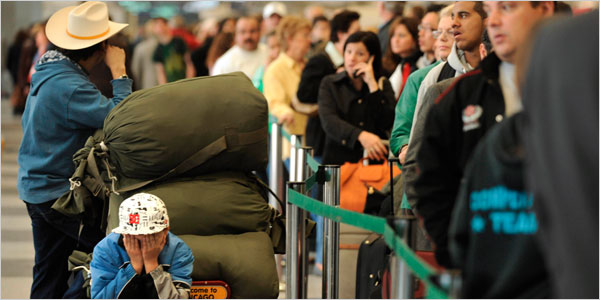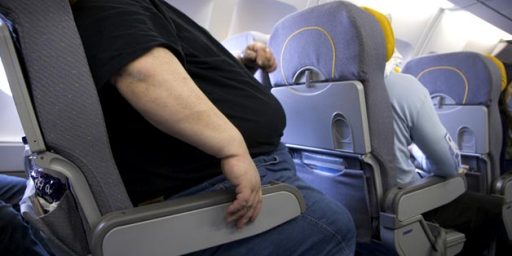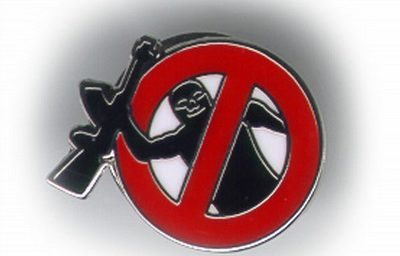NEW AIRLINE SCREENING SYSTEM
WaPo: U.S. to Push Airlines for Passenger Records
The government will compel airlines and airline reservations companies to hand over all passenger records for scrutiny by U.S. officials, after failing to win cooperation in the program’s testing phase. The order could be issued as soon as next month. Under the system, all travelers passing through a U.S. airport are to be scored with a number and a color that ranks their perceived threat to the aircraft.
Another program that is to be introduced this year that seeks to speed frequent fliers through security lines in exchange for volunteering personal information to the government.
The two new initiatives will augment a system introduced last week to fingerprint and photograph millions of foreign visitors on arrival in the United States.
***
The TSA said the new computerized system is to provide a more thorough approach to screening passengers. It will collect travelers’ full name, home address and telephone number, date of birth and travel itinerary. The information will be fed into large databases, such as Lexis-Nexis and Acxiom, that tap public records and commercial computer banks, such as shopping mailing lists, to verify that passengers are who they say they are. Once a passenger is identified, the CAPPS 2 system will compare that traveler against wanted criminals and suspected terrorists contained in other databases.
This would appear to be more efficient than the current system, although it still has its critics.
[P]rivacy experts are skeptical. Registered traveler is “going to create two classes of airline travelers,” said Barry Steinhardt, director of the technology and liberty program at the American Civil Liberties Union, an organization that opposes both programs. Registered traveler, he said, “has no security benefits.” Terrorists will learn one way or another how to “game” the system, he said.
***
“These kinds of dragnet systems are feel-good but cost-inefficient,” said Richard Sobel, a privacy policy researcher at Harvard Medical School. “The government would do much better using resources to better identify people and deter people who might cause some harm than to use resources devoted to the 99 percent of people who are innocent.”
To do that, though, requires some system of identifying those who are at risk. And it does make sense to identify frequent travelers who are obviously not a security risk so that attention can be turned to those about whom less is known.






And it does make sense to identify frequent travelers who are obviously not a security risk..
Why are frequent travelers less of a risk? The guys who pulled off 9/11 had plenty of frequent flier milage. They flew from NYC to Miami and to LA multiple times. Not to mention flying onto the country etc.
This shows the devil in this program. What metrics do they use?
That is a simple question to ask but profoundly hard to answer.
If someone has passed background screening, there’s not much need to do it repeatedly. I’m not saying they don’t still go through the metal detectors, just that they be treated differently than those who haven’t been pre-screened.
My point is that under the “new system” the bad guys would have been “pre-screened” multiple times.
I don’t know of a better system, but this system -additionally hamstrung by the fact we can’t “profile” radical muslim males age 18-35 – seems like it has an uphill battle.
What people really want is a crystal ball. Those don’t exist. Deciding what metrics to use and figuring out how they change thru time seems like a near impossible task.
I’m not blaming the folks for trying… I’m just making the observation that no matter the metric, the bad guys will find a way thru it.
That’s probably true of the real pros; although we’d catch guys like that moron shoe bomber.
The less time we spend frisking little old ladies and children, the better off we are.